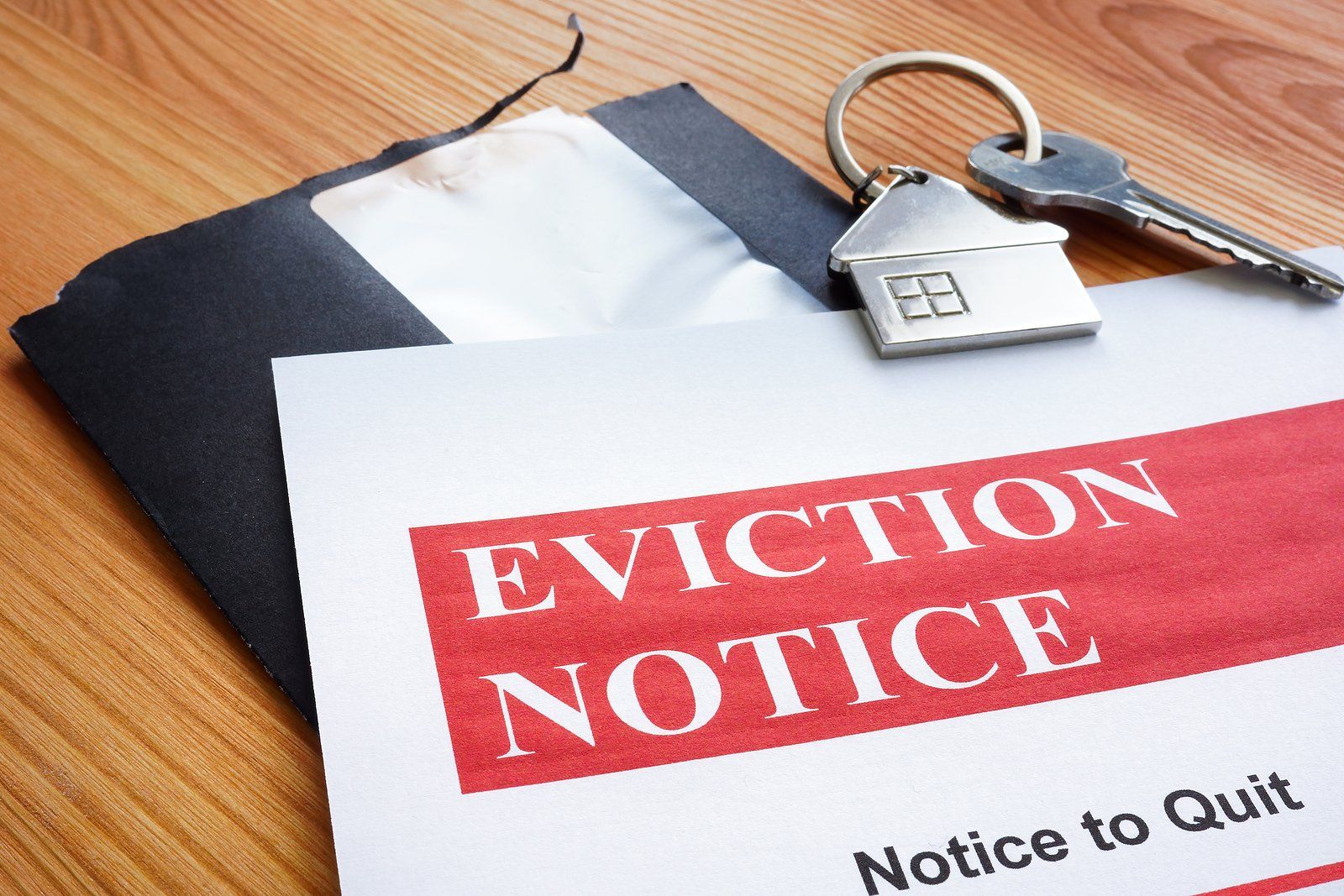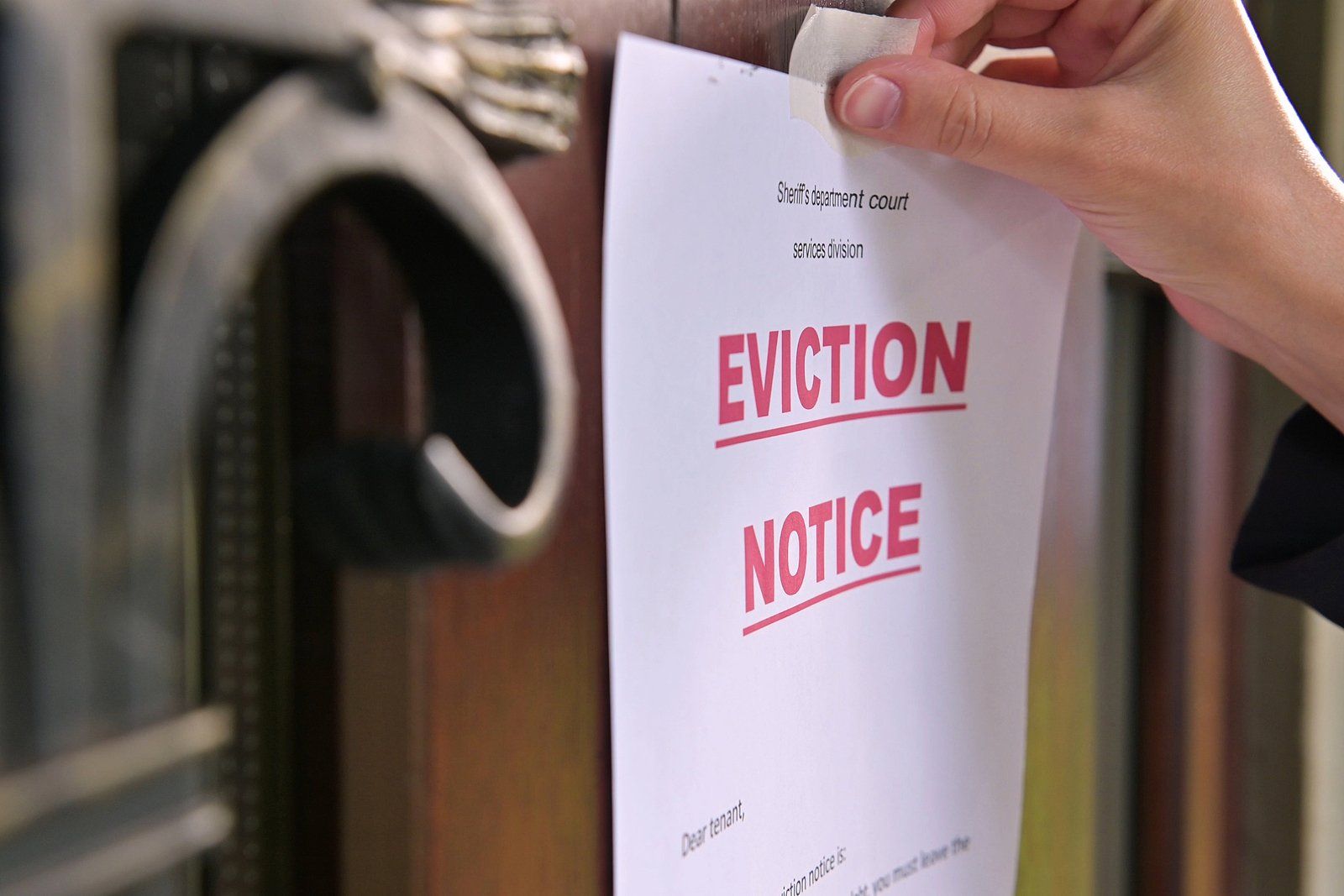Notices to Quit
Disclaimer: The following is not intended to be legal advice for any purpose and is for discussion purposes only. No attorney client relationship is formed until a contract is signed and executed.

Notices to quit
Massachusetts law requires that landlord serve a tenant with a notice to quit in order to initiate an eviction in most instances. The law specifies what type of notice to use under what circumstances. Failure to follow the statutory provisions can lead to the dismissal of an eviction case if and when it reaches the court system. This is why it is very important to understand when to send a notice to quit, what type of notice to use, and what the notice needs to say in order to be legally valid.
When you call an experienced attorney who has done many eviction cases (known as “Summary Process” cases in Massachusetts), you may feel some sticker shock when they tell you the cost of a notice to quit, as it may seem like nothing more than a form letter to the average consumer. What you are paying for is the knowledge and experience of the attorney, regarding what notices to use, the appropriate timing for service of the notice, and the correct information that needs to be present on a valid notice. Notices that have seemingly minor technical errors can result in a case being dismissed and the landlord will be stuck with the costs of re-starting the entire eviction process. Therefore it is wrong to think of a notice to quit as a mass produced document that can be printed off and served with hardly an afterthought.
As many landlords have found out the hard way, Massachusetts law is very sympathetic towards tenants, even those who have violated their leases or failed to pay rent. An incorrectly drafted or improperly served notice to quit can cause a landlord the frustration of having to re-restart a Summary Process case, re-serve the notice, or worse, it could subject the landlord to civil liability by way of counterclaims in Summary Process proceedings or a separate civil suit. In some cases, landlords are able to successfully navigate a Summary Process hearing without the benefit of legal counsel, however, the risks are high. This is why I recommend utilizing an attorney who knows the Housing Court rules and procedures well. Even an attorney who has experience in general civil proceedings might not fully grasp the specific rules and processes of Housing Court, and I have witnessed attorneys sending incorrect notices to quit due to their lack of understanding of the specific requirements set forth in the law.
What should you do about a notice to quit?
As a landlord, if you need to send a notice to quit, the first thing you should do is strongly consider hiring an experienced attorney. The cost may appear to be high at first, however, you must think carefully about the risks of proceeding without an attorney, which includes the costs of re-starting the eviction process if you have made any errors causing the court to dismiss your action. Be prepared to answer the attorney's questions about the tenant, the premises and the relationship between the landlord and the tenant. Some of these questions may seem irrelevant, but an experienced attorney knows what to ask in order to get the notice right the first time.
As a tenant if you receive a notice to quit, you may also want to contact an attorney if you have the means to do so. A notice to quit is an important document, and many people can feel intimidated and overwhelmed upon receiving one. The significance of the document should not be understated, however, a knowledgeable attorney will be able to examine the notice and discover if it is in fact legally valid or if it is defective. Defective notices to quit are sometimes served by inexperienced or uncouth landlords, and knowing how to identify a defective notice can be a powerful negotiating tool if you are facing eviction. Tenants who understand their rights and the requirements of the law are in a position to negotiate for a positive outcome in what might initially seem like a desperate or hopeless scenario.
If you are looking for an attorney who is knowledgeable about notices to quit, evictions and Summary Process generally, my office can serve your needs. All first-time callers receive a free 15 minute phone consultation, during which I speak to the potential client about their circumstances, assess whether or not my office is the right fit for them, and determine what course of action is best going forward. If we decide not to work together after the 15 minute consultation, there is no cost to you.
For landlords, if you decide to hire my office, I will walk you through the process of sending the notice quit, and I will draft and serve the document. From there we can discuss what the next steps of the process are, which might include negotiating with the tenant to avoid further legal action and save costs, or taking the tenant to court. I will be upfront about the costs of each step so that you can budget effectively throughout the proceedings, and I use my knowledge of the law and courtroom procedures to minimize costs to you. My past clients have included first time landlords who own just a single rental unit and large property management companies and trusts that own or are responsible for hundreds of units across multiple jurisdictions in the state. In the past I have dealt with tenants who fail to pay rent, tenants who engage in lease violations or illegal activities on the premises, abandoned leases, unapproved sublettors and more. Each case is different and your results can never be guaranteed, but you can be confident that my experience will benefit you.
For tenants, if you receive a notice to quit or have some other dispute with your landlord, your situation may not be as hopeless or desperate as it initially seems. I offer a wide range of services to tenants at prices that most find palatable. These services include but are not limited to: A limited consultation in which you pay an hourly fee and I advise you based on your circumstances, and provide guidance on how to move forward in order to give you peace of mind; Negotiation on your behalf with your landlord in order to avoid going to court and possibly resolving the situation amicably or at least reasonably; Formally representing you in court if the landlord files suit against you. I have represented tenants in all different circumstances, and in the past I have been able to stop an eviction dead in its tracks due to faulty documents served by the landlord, I have negotiated for tenants to receive time to move, and I have filed suit against landlords who fail to follow the law. All cases are different so your results may vary and are not guaranteed, but you be confident in my knowledge when it comes to landlord-tenant law.
If you are ready to proceed with a notice to quit or you have recently received one, call my office today to speak to a professional. The first 15 minutes is free for first-time callers in order to decide if my office is the right fit for you. During the 15 minute consultation no legal advice will be given nor is an attorney client relationship formed until a contract is signed.


